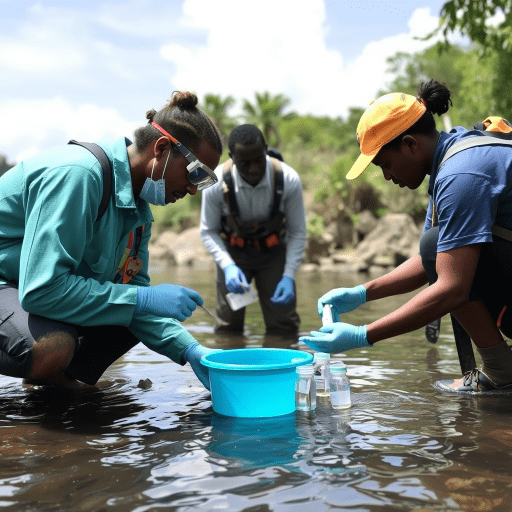NEPA’s New Plan: Cash for Clues and the Case of the Disappearing Evidence

In Jamaica, people are quick to pull out their phones to catch a viral dance or a pothole the size of a small pond, but when fish start floating belly-up in a polluted river, suddenly everyone loses their eyesight.
Now, the National Environment and Planning Agency (NEPA) has finally caught on to a longstanding truth that if you want people to speak up, you might have to sweeten the deal.
The agency has announced it’s prepared to reward tipsters who report environmental breaches. Yes, you heard right. NEPA is ready to put some money behind your conscience.
It’s a practical move, especially after the embarrassing collapse of the case against a well-known beverage company. That legal effort fizzled faster than a flat soda, with the Office of the Director of Public Prosecutions (ODPP) saying there just wasn’t enough evidence to proceed.
The sole NEPA officer who gave testimony was a qualified marine biologist; left standing alone like someone who showed up at a party before the DJ. Respect due to her efforts, but in the courtroom, expert opinion needs backup, and this case clearly didn’t have enough legs to run.
To fix their public image, NEPA’s CEO, Leonard Francis, took to the mic with the energy of a man on a mission. He announced plans to enlist everyday citizens as environmental wardens. These trained volunteers would help monitor and report illegal dumping, pollution, and other environmental offences. The only hiccup? Some would-be wardens want compensation, phone cards, access, maybe a patty or two. NEPA says they’re working on it.
Francis even offered to give out his personal number to anyone ready to record incidents, provide witness statements, and help protect Jamaica’s natural spaces. That level of openness is rare. You’d think he was campaigning for office.
NEPA also plans to train their compliance officers to the level of district constables and hopes to establish an environmental court. These are bold steps, showing that the agency is trying to evolve. But the Wisynco case still lingers like bad seasoning in a good pot. NEPA insists they did the right thing, laying charges based on what they observed: a broken pipe, effluent flowing into the river, and the Wildlife Protection Act to back them up. Still, the ODPP didn’t think the case could stand up in court.
Now, let’s be honest. The idea of paying people to care about the environment might sound strange, even sad. But this is the age we live in. Patriotism doesn’t always come free. If financial incentives help regular Jamaicans get involved in protecting our land, then perhaps this isn’t bribery. Perhaps it’s just realism.
Imagine Miss Gloria from the end of the lane now has a whistle, a badge, and a camera phone. She’s reporting illegal dumping the way she used to report who left the gate open. If it gets results, why not?
The truth is, we all know what’s wrong, but knowing and doing are two very different things. NEPA’s challenge now is to turn ordinary people into environmental advocates. That means listening to concerns, offering fair compensation, and most importantly, following through with real enforcement.
So let’s see if this citizen warden programme becomes more than another nice-sounding initiative. Because rivers don’t clean themselves, and laws don’t enforce themselves. If we all chip in, whether out of love, duty, or a little financial nudge, we just might keep Jamaica beautiful for the next generation.
And who knows? One day, the biggest headlines might not be about who dumped what, but about the everyday heroes who helped clean it up.



